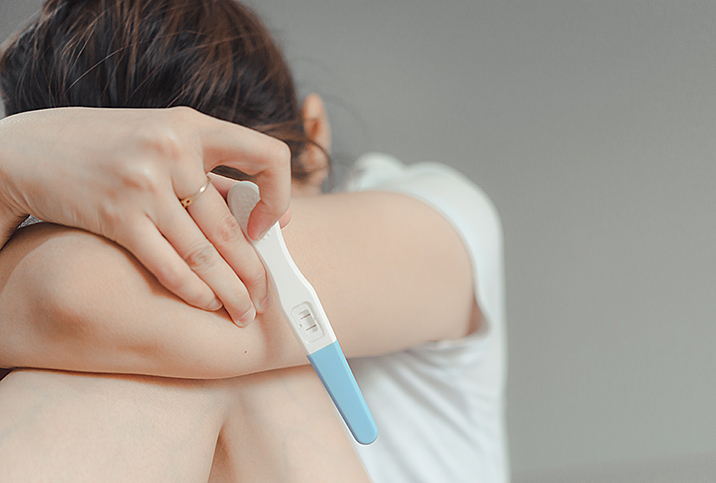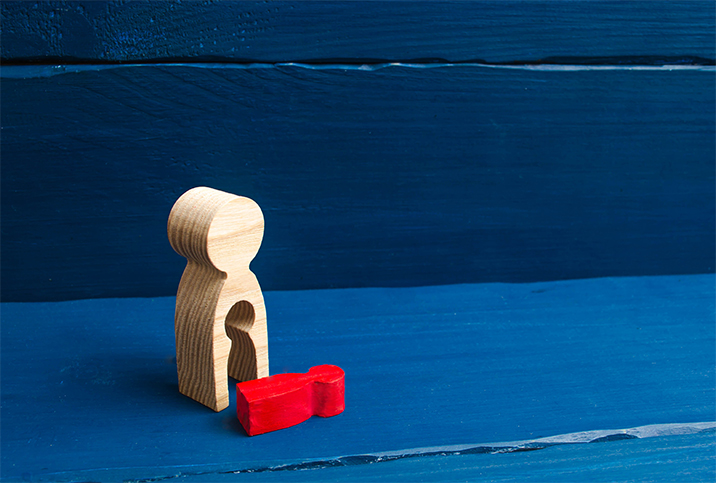Suffering in Silence: Abortion's Emotional Aftermath for Men

In 2018, there were 614,820 legal abortions reported from 48 areas to the Centers for Disease Control and Prevention (CDC). The rate of abortions was 11.3 per 1,000 women ages 15 to 44, and the ratio was 189 abortions for every 1,000 live births.
Abortion is considered a women's issue. But neglecting men's potential need for support and acknowledgment can often be a painful oversight with lifelong consequences.
The role of men in abortion
In situations where rape, incest, abuse or violence contribute to the circumstances leading to abortion, many people feel the offender's emotions should be given minimal regard. However, for couples wishing to terminate a pregnancy, the procedure can and will impact both mother and partner, especially as men may be present at the abortion clinic and can witness the abortion firsthand.
In other circumstances, a male partner may not have even been aware their wife or girlfriend was pregnant until after an abortion. As a result, they may be caught off-guard and, whether they agree or disagree with their partner's decision, it's not uncommon for them to find they're unprepared to handle the emotional impact.
How grief promotes isolation
Any time we experience a loss, grief is quick to follow. Unfortunately, our modern society does little to prepare us for the inevitable periods of grieving we encounter throughout our lives. Grief often makes people uncomfortable, so they react by attempting to invalidate or downplay the experience.
Friends and family may give advice and suggestions, but often, well-intentioned phrases can be irrelevant at best and harmful at worst. You have the world on your shoulders and meaningless platitudes just don't help very much. Often, you'll politely have to listen to well-worn phrases, including:
-
Don't think about it.
-
Time heals all wounds.
-
It's not a big deal.
-
Just move on.
-
You'll be fine.
These kinds of comments are spoken as much to express sympathy as they are to ignore your feelings of sadness, disappointment and anger. However, the reality is we can only heal our hearts by addressing unpleasant emotions head-on.
When we know a loved one is grieving, we may be unsure whether to engage or leave them alone. In the effort to "give people space," we discover we've accidentally isolated them during a very tough period of their life.
The heavy emotions associated with abortion can cause people to pull away when support is desperately needed. It will take work, but try to keep them close.
Overcoming emotional barriers for men
Compounding the isolation associated with grief are outdated ideals imposed upon men. Many men were taught from birth to have inhibitions about showing emotions for fear of being perceived as weak from outside sources, as well as their own internal dialogue. Without an outlet for despair or an understanding of where they fit in the abortion experience, men often find themselves suffering in silence.
If you know a couple who has had an abortion, it's essential to acknowledge and offer support to both people involved. You may need to work harder to reach out to the male partner, especially if he's trying to put on a "brave face"—if he feels he's not allowed to grieve after an abortion.
Events like Father's Day or the birth of subsequent children can be incredibly challenging for both partners in a relationship if there has been an abortion in their past.
If you know a man who is struggling, don't let him be forgotten. Encourage him to find support through community resources, online support groups or therapists.
Grief, if unaddressed, can lead to problems later in life and become a barrier to future growth and happiness. Fortunately, the simple act of listening and allowing them to share without judgment can do a lot to combat loneliness and promote emotional recovery.

















